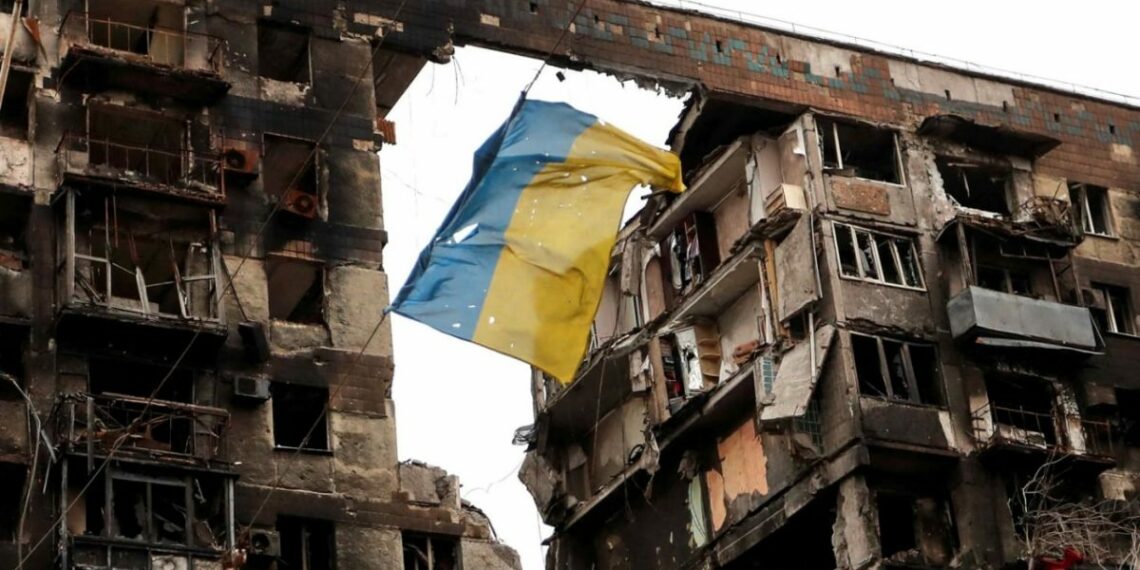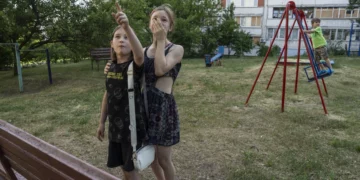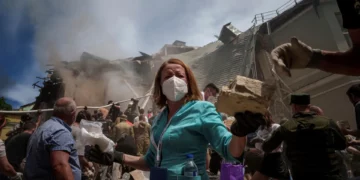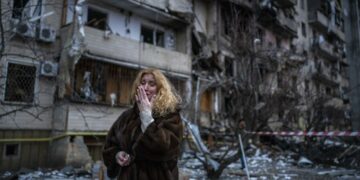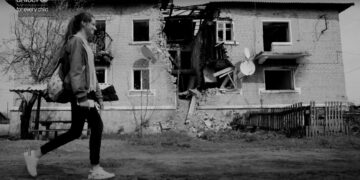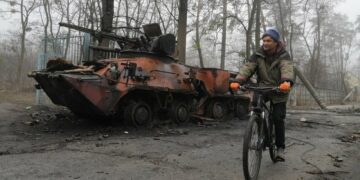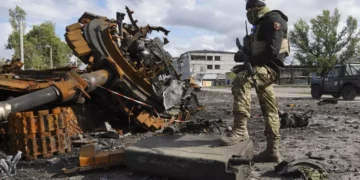by Victoria Vasylenko
Mariupol is a city that I had been living an ordinary, peaceful life until everything changed on February 24. Early that morning, at around 2:30 a.m., I was jolted awake by a series of earsplitting explosions. At first, I thought it was a nightmare, but the panic on my parents’ faces confirmed that this was real. By 3:00 a.m., our electricity, internet, and communication were gone. We only discovered at 7:00 a.m. that a full-scale invasion by the Russian Federation had begun.
Although many people’s perceptions of war might have shifted on that day, mine did not. I had already lost my home in 2014, so the terror of conflict was not some distant fear—it was something I had lived through. Still, the overwhelming dread returned. My mother and I started packing, unsure of what to do next, and I cried constantly, afraid I might lose everything all over again.
We stayed home until February 26, despite hearing non-stop explosions. That morning, Russian troops destroyed nearby houses, forcing us to flee. We went to stay with my grandparents, but by that evening, an aerial bomb dropped on their neighbour’s house. Once again, we were left with no electricity, water, or heat. On February 28, my grandparents urged us to move on, and we headed toward central Mariupol, naively hoping for safety, only to discover a living nightmare instead.
Shelters were overcrowded, so we ended up on the first floor of an acquaintance’s apartment. Every day was a harsh routine: waking at 4 or 5 a.m. to light a fire, boil water for tea, and survive on a tiny piece of chocolate or cookie. My mother would prepare a thin soup of a few potatoes and some grain, often with no meat. At sunset, we went to bed in darkness. Each night, we expressed our love for one another, not knowing if we’d see the morning. My parents told my older sister and me, we should escape by car if anything happened to them. I, however, wished that if we died, it would be quick and together because I didn’t want to witness anyone suffering.
By March 5, our water was gone. My father and I risked going out, and we found a well surrounded by bodies—people who had been shot. We managed to collect some water, but it was too dangerous to return, so we each survived on one glass a day. Over time, the starvation, thirst, and cold—4 degrees Celsius indoors—triggered a panic attack in me on March 12. Still, my parents comforted me, vowing to keep me alive.
We stayed in Mariupol until March 16, enduring nonstop bombardments and phosphorus bombs. Finally, our neighbours found out that the road to Zaporizhzhia was open. But we didn’t have enough fuel, so we stopped in the middle of the road and two days later decided to return to the house we left on 26 February.But it was smashed by rockets and looted by the Russian military who lived there. We later discovered we needed documents proving we had passed through a filtration camp, so we spent two agonizing days there. Repeated attempts to reach Ukrainian-controlled territory failed until June 7 when we finally left. After five days and 40 checkpoints, we arrived in Zaporizhzhia on June 12 and eventually reached Germany.
Even though the events of February 24 were devastating, my perception of war did not change—it had never been far away for me.
Instead, it reminded me once again that war brings only destruction, suffering, and loss.


